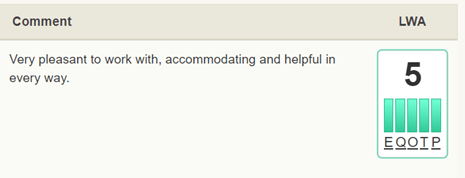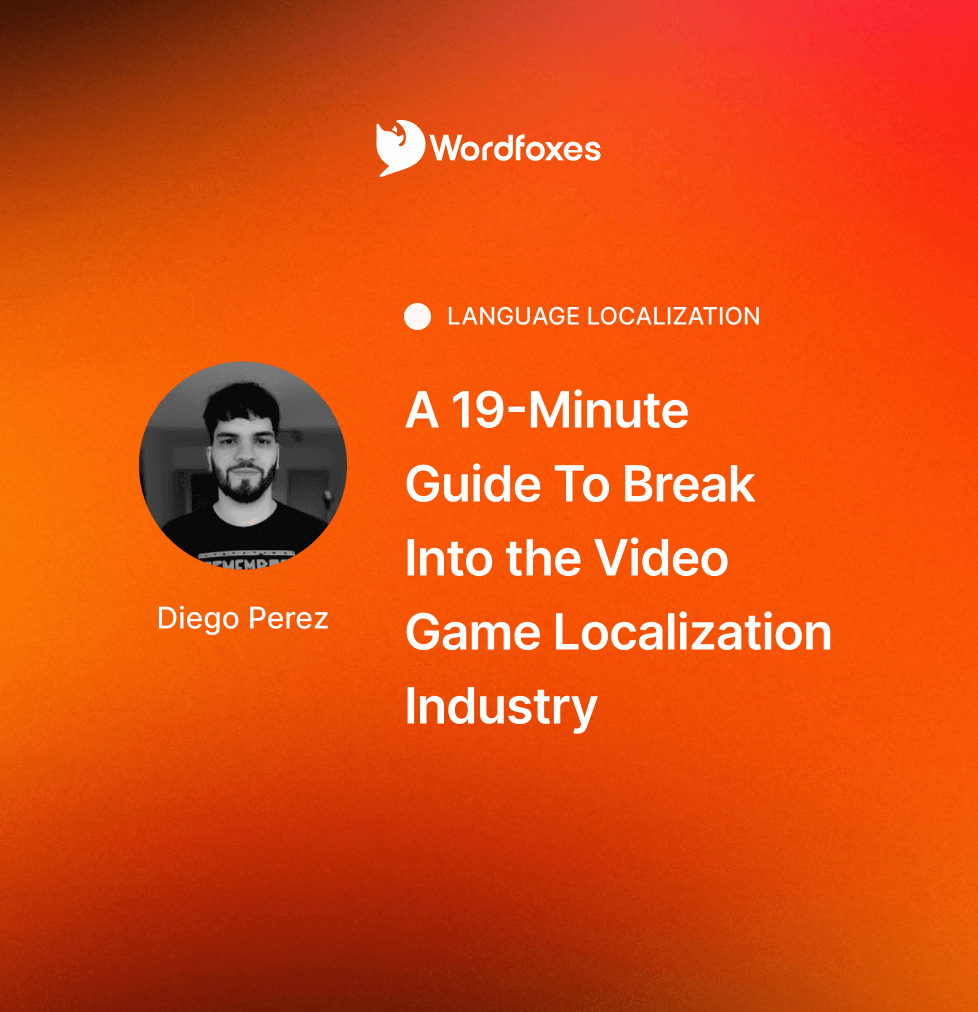If my nine years of experience in the game localization field have taught me anything is that many recent graduates and industry professionals often struggle with effectively marketing their localization services and breaking into this competitive market. As someone who has been on your shoes previously, I totally understand how frustrating this can be. If you have no idea where to begin, this brief article will offer you four helpful tips for promoting your video game localization services.
1. Enhance Your Presence Online
The first step to promote your gaming localization services is to create a profile on LinkedIn. Since this social media focuses on professional networking and career development, virtually every company has their own business page, which you can follow and explore.
- Focus on connecting with professionals from different translation companies and gaming studios that could benefit from your localization services. Try searching for CEOs, Vendor Managers, Localization Directors, Talent Managers, Recruiters, Project Managers, and any other relevant titles you can think of. After that, send them a connection request providing details about your services. If there is any interest, you could also offer to schedule a meeting or even to take a short translation test.
- When you use the Search feature to find people and companies you would like to connect with, LinkedIn suggests other popular pages and professionals in the same business through the “People Also Viewed” and the “People You May Know” features. You can use these functions to find new professionals, localization companies and gaming studios you didn’t know of and add them to your network.
- Don’t forget to use LinkedIn’s algorithm to your benefit! If you are creative enough, creating useful content for the community is a great way to expand your network and increase your chances of receiving new job offers and referrals. The more connections you have, the more users your posts will reach. You can talk about the significance of localization to the gaming industry, explain how developers can benefit from localizing their games, expand on the challenges of gaming localization, or even share some trivia about yourself.

Another excellent platform you can use to promote your services is ProZ. Although not as popular as LinkedIn, this community for translators is still used daily by employers and freelancers worldwide. As always, your first step is to create your translator profile and fill in as much information as possible.
ProZ offers many useful features, but the two most important ones you want to focus on are the Job Board and the Blue Board.
- The Job Board usually appears in the main page, and this is where companies and clients look for translators to work with. To make things easier, you should customize the Job Board to only show jobs in your language pairs, and also turn on email notifications here. This way, you will receive instant emails whenever a job is posted on the platform, increasing your chances of being one of the first applicants. However, keep in mind that most jobs require a ProZ membership to apply.
- The Blue Board is a database of translation companies which is updated daily by other translators. Aside from being an amazing resource to find new clients to work for, what makes this tool so useful is the fact that translators can provide feedback about these clients. Each company has their own LWA (Likelihood of Working Again) score, which you can check in order to be sure that the client you are trying to work with is trustworthy, thus preventing any possible scams. Here’s an example of the feedback seen by paid members of the platform:
Besides these two websites, freelance platforms like Upwork and Fiverr can also be great means to market your services. However, it’s crucial to note that even though there is a reasonable number of jobs posted daily on these job boards, you will be competing with thousands of freelancers for projects that are often poorly paid, which can turn into a frustrating and negative experience.
2. Build and Optimize a Professional Website
Professional websites are excellent platforms to increase your online visibility and showcase your services, portfolio, and contact details. With the right knowledge, you can use them to prove that you take your work seriously and attract new clients.
You can start by providing detailed information about your services. These can include anything from translation to localization, proofreading, cultural adaptation, voiceover or quality assurance. While you’re at it, try to explain the particularities of each service and how they can benefit the end client. As an example, the Portuguese language has different variants, such as European and Brazilian Portuguese, with linguistic differences that can be negatively perceived by the target audience that buys the game. You can use pictures or infographics to draw attention to them.
Naturally, your experience is what will draw most clients to your website. By showcasing your portfolio, you can significantly improve your likelihood of reaching new customers. However, keep in mind that non-disclosure agreements can prevent you from sharing sensitive content online. As such, always make sure that you get permission from your clients before sharing any samples of your work, testimonials, and case studies!
Once this is all set and done, you can improve your website’s search engine ranking with Search Engine Optimization (SEO).
- Start by identifying keywords and expressions that might be used by clients when searching for gaming localization services. Some common examples include “game translation”, “video game localization” or “game localization services”, but you can also consider keywords that are more specific and have less competition, such as “game translation for indie developers”.
- For optimal results, incorporate your target keywords naturally in content such as blog posts, articles, case studies and FAQS related to gaming localization.
- For better search engine rankings and more clicks, focus on creating accurate, engaging, and relevant meta titles and descriptions. These elements tell users what your page is about, serving as a first impression of your webpage. Below you can find an example of the meta title (1) and meta description (2) for Wordfoxes’ website.
- Getting other websites to link to yours, known as backlink building, can also boost visitor traffic to your website. You can do this by writing articles for industry websites, connecting with important people in online groups, and checking their website links regularly to ensure they are updated.
Finally, remember to include a contact and inquiry form. This will make it easy for potential clients to reach out to you with enquiries or project requests.
3. Reach Out to Indie Developers
Unlike larger development studios, which often have big budgets and prefer to work with established game localization companies, indie developers usually operate on smaller budgets. Some translators proactively reach out to them offering flexible pricing options based on their budget, while others will gladly offer to localize their games for free in exchange for visibility in the credits or permission to include the game name in their portfolio (remember to always investigate the company beforehand, since some developers may take advantage of this practice!). This could be a win-win situation for both parties because it allows the developers to benefit from a high-quality localization service while supporting new talents in the translation industry.
Due to their size, larger localization studios also tend to work on multiple projects simultaneously, which can sometimes impact direct communication with the developers and slow down the localization process. Because indie studios usually have smaller teams and more direct communication channels than AAA+ game studios, working closely with freelance translators is frequently seen as an ideal solution.
Some developers also prefer collaborating with translators who are gamers themselves because they offer a unique blend between gaming expertise, cultural insight, and player-centric perspective. Since video game terminology is often odd and very specific, it’s more likely that gamers will better understand the context in which a certain word or expression is used and how it would be received by the players and the community.
If you’re looking to engage with indie game communities and developers, my suggestion is to be active on Reddit and dedicated Facebook/Discord groups.
4. Attend Gaming Conferences and Participate in Game Jams
Another good strategy is to attend game jams and in-person gaming events, such as conferences and meetups. Ever heard of the term “game jam” before? Game jams are events where game creators, artists, musicians, and other participants team up to create video games or demos in a short period (usually a few hours or days). At the end of the event, the most skilled contestants may even win awards from the jury!
These contests serve as good practice for beginning translators because the loc files are easily accessible and follow a format similar to those used in professional projects. This exposure to multiple game genres is also beneficial because it allows translators to familiarize themselves with different types of game text, from dialogues and UI elements to instructions.
On top of providing excellent networking opportunities with game developers, publishers, localization specialists and other industry professionals, gaming conferences and game jams are also a wonderful means to learn more about the industry, and ultimately find potential clients. Remember to bring along a few business cards to share with others!
Here is a list of some of the most famous game jams and gaming conferences currently available:
- LocWorld
- Game Developers Conference (GDC)
- Game Global Summit
- IndieCade
- Tokyo Game Show (TGS)
- LocJAM
- Global Game Jam
- Ludum Dare
Mariana Pereira is a Portuguese translator and RPG enthusiast. She has participated in the PT-PT localization of projects such as Horizon Forbidden West, Alan Wake 2 and Harry Potter: Magic Awakened. Her favorite videogames include Final Fantasy, Dragon Age, The Witcher, Octopath Traveler, Pokémon, The Legend of Heroes franchise and many others.






